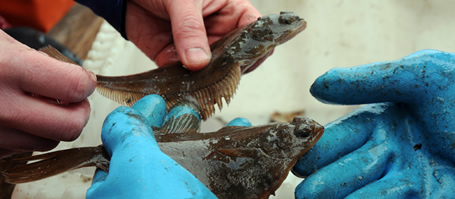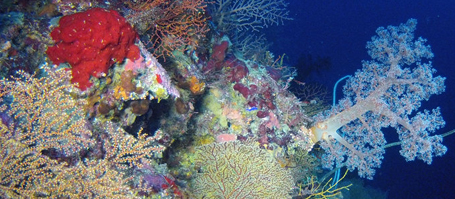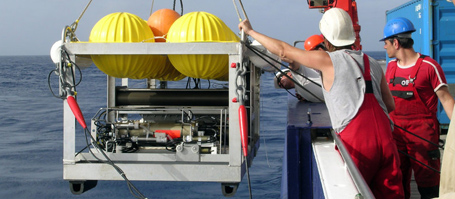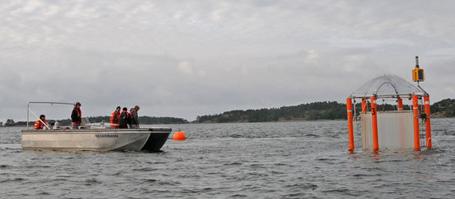In the trade journals Marine Policy and Marine Biology, they show formal weaknesses in how data, which is being used as a basis for calculations by the UN's Food and Agricultural Organisation (FAO), is obtained and evaluated. In their opinion not three but 24 percent of global fish stocks have collapsed.
How many fish are available to the global population per person per year? How are the fishery industries of different countries developing? How are the various fish stocks doing? Answers to questions like these are given by the Food and Agriculture Organization of the United Nations. The FAO has been publishing the report State of the Worlds Fisheries and Aquaculture (SOFIA) since 1995 and it is used as a fundament to assess the global fishery industry. However, the scientists from GEOMAR | Helmholtz Centre for Ocean Research Kiel and from Fisheries Centre of the University of British Columbia criticize precisely this data set.
“In the report SOFIA 2010, the FAO describes global catches of around 80 million tons as stable” summarizes Dr Rainer Froese. The fishery biologist from GEOMAR is the main author of one of the studies published in Marine Policy and Marine Biology. “The FAO states that the number of fishermen is growing faster than the global population. They also maintain that in developing countries the amount of fishery transportation is increasing, yet the general amount is staying the same. We show that, based on a earlier study, the effort put into catching, i.e. the entirety of fishermen, boats, nets, hooks and the days at sea, is growing steadily. Nonetheless the effort needed to get the same yield has risen. This means that the fish stocks are shrinking.”
The scientists believe that it is indispensible to include all globally available data to be able to correctly evaluate the condition of the fisheries. “The FAO only uses statistics from stocks for which detailed information is available” explains Froese. “These are, however, typically the stocks that bring high profits and have survived fishery pressure over a long time.” Statistics that are based on highly resistant fish cannot be seen as representative, criticizes the fishery biologist. “Based on these samples, the FAO is maintaining that only three percent of global stocks are collapsing. If one includes all the stocks though, which is what our method allows, then the percentile is eight times as high, at 24 percent.” The number of recovering stocks is, in comparison, small: The researchers and the FAO both estimate them at around one percent of global fish stocks.
Research into sustainable management of fish stocks is one of the topics of the Cluster of Excellence “Future Ocean” in Kiel. The areas of maritime sea law, fishery and economics are all involved when developing a long-term management system for the fisheries sector.
Original articles:
Froese, R., D. Zeller, K. Kleisner and D. Pauly. 2012. What catch data can tell us about the status of global fisheries. Marine Biology, doi: 10.1007/s00227-012-1909-6
Pauly, D. and R. Froese. 2012. Comments on FAO's State of Fisheries and Aquaculture, or 'SOFIA 2010'. Marine Policy 36:746-752, doi:10.1016/j.marpol.2011.10.021
Previous article on fishing effort:
Anticamara, J.A., R. Watson, A. Gelchu and D. Pauly. 2011. Global fishing effort (1950-2010): trends, gaps, and implications. Fisheries Research 107:131-136
Links:
SOFIA 2010
Sea Around Us
Ozean der Zukunft
Images:
Can be downloaded at www.geomar.de.
Contact::
Dr. Rainer Froese (GEOMAR, FB3-EV), Tel.: 0431 600-4579, rfroese@geomar.de
Maike Nicolai (GEOMAR, Communication & Media), Tel.: 0431 600-2807, mnicolai@geomar.de
Friederike Balzereit (Future Ocean, Public Outreach), Tel. 0431 880-3032, fbalzereit@uv.uni-kiel.de
…



